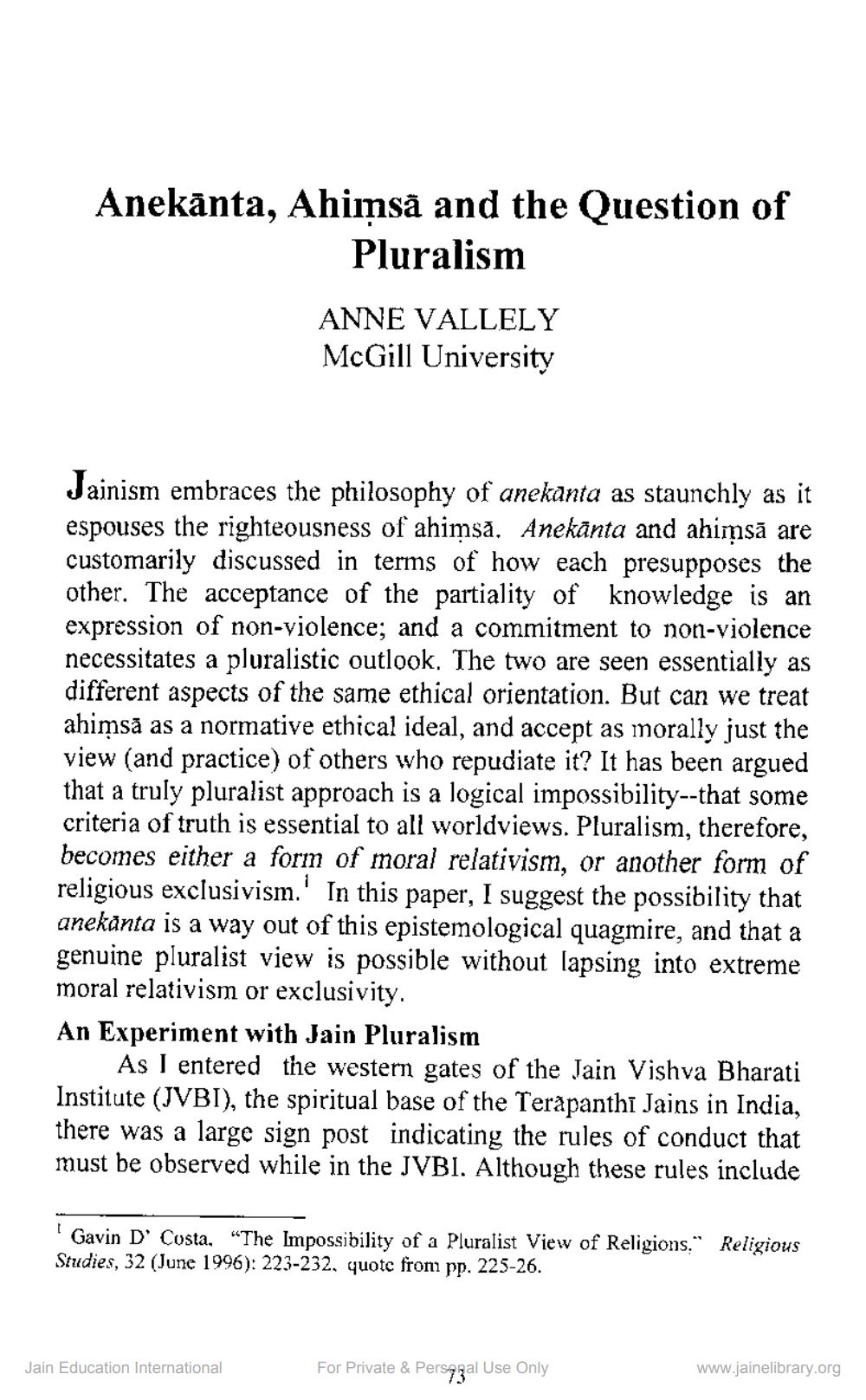Book Title: Anekanta Ahimsa and Question of Pluralism Author(s): Anne Vallely Publisher: Z_Lessons_of_Ahimsa_and_Anekanta_for_Contemporary_Life_014006.pdf View full book textPage 1
________________ Anekānta, Ahimsa and the Question of Pluralism ANNE VALLELY McGill University Jainism embraces the philosophy of anekanta as staunchly as it espouses the righteousness of ahimsa. Anekānta and ahimsă are customarily discussed in terms of how each presupposes the other. The acceptance of the partiality of knowledge is an expression of non-violence; and a commitment to non-violence necessitates a pluralistic outlook. The two are seen essentially as different aspects of the same ethical orientation. But can we treat ahiņsā as a normative ethical ideal, and accept as morally just the view (and practice) of others who repudiate it? It has been argued that a truly pluralist approach is a logical impossibility--that some criteria of truth is essential to all worldviews. Pluralism, therefore, becomes either a form of moral relativism, or another form of religious exclusivism.' In this paper, I suggest the possibility that anekanta is a way out of this epistemological quagmire, and that a genuine pluralist view is possible without lapsing into extreme moral relativism or exclusivity. An Experiment with Jain Pluralism As I entered the western gates of the Jain Vishva Bharati Institute (JVBI), the spiritual base of the Terapanthi Jains in India, there was a large sign post indicating the rules of conduct that must be observed while in the JVBI. Although these rules include Gavin D' Costa, “The Impossibility of a Pluralist View of Religions." Religious Studies, 32 (June 1996): 223-232, quote from pp. 225-26. Jain Education International For Private & Persaal Use Only www.jainelibrary.orgPage Navigation
1 2 3 4 5 6 7 8 9 10
